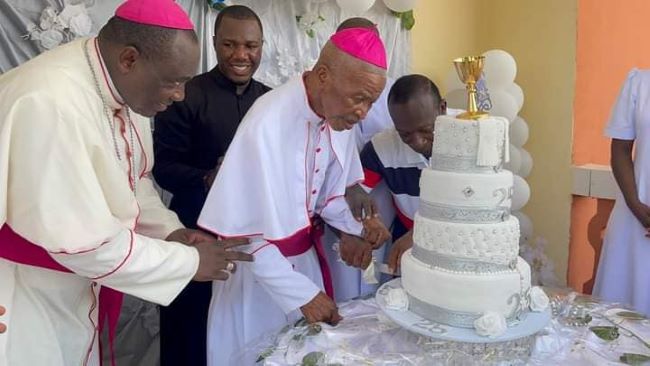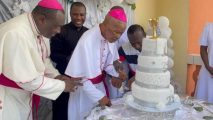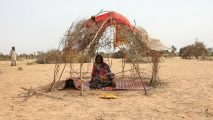Categories
Archives
- April 2024
- March 2024
- February 2024
- January 2024
- December 2023
- November 2023
- October 2023
- September 2023
- August 2023
- July 2023
- June 2023
- May 2023
- April 2023
- March 2023
- February 2023
- January 2023
- December 2022
- November 2022
- October 2022
- September 2022
- August 2022
- July 2022
- June 2022
- May 2022
- April 2022
- March 2022
- February 2022
- January 2022
- December 2021
- November 2021
- October 2021
- September 2021
- August 2021
- July 2021
- June 2021
- May 2021
- April 2021
- March 2021
- February 2021
- January 2021
- December 2020
- November 2020
- October 2020
- September 2020
- August 2020
- July 2020
- June 2020
- May 2020
- April 2020
- March 2020
- February 2020
- January 2020
- December 2019
- November 2019
- October 2019
- September 2019
- August 2019
- July 2019
- June 2019
- May 2019
- April 2019
- March 2019
- February 2019
- January 2019
- December 2018
- November 2018
- October 2018
- September 2018
- August 2018
- July 2018
- June 2018
- May 2018
- April 2018
- March 2018
- February 2018
- January 2018
- December 2017
- November 2017
- October 2017
- September 2017
- August 2017
- July 2017
- June 2017
- May 2017
- April 2017
- March 2017
- February 2017
- January 2017
- December 2016
- November 2016
- October 2016
- September 2016
- August 2016
- July 2016
- June 2016
Featured
 Bishop Francis T. Lysinge @ 25!
Bishop Francis T. Lysinge @ 25!  Understanding the Biya Francophone regime’s support for the Israeli genocide in Gaza
Understanding the Biya Francophone regime’s support for the Israeli genocide in Gaza  Poverty under Biya: Cameroonians embrace Chinese language for brighter futures
Poverty under Biya: Cameroonians embrace Chinese language for brighter futures  Cameroon is broken: Who can fix it?
Cameroon is broken: Who can fix it?  Ethiopia: U.S Senator Cardin Statement on the Killing of Bate Urgessa
Ethiopia: U.S Senator Cardin Statement on the Killing of Bate Urgessa
Most Commented Posts
 4 Anglophone detainees killed in Yaounde
4 Anglophone detainees killed in Yaounde
19 comments Chantal Biya says she will return to Cameroon if General Ivo Yenwo, Martin Belinga Eboutou and Ferdinand Ngoh Ngoh are sacked
Chantal Biya says she will return to Cameroon if General Ivo Yenwo, Martin Belinga Eboutou and Ferdinand Ngoh Ngoh are sacked
13 comments Anglophone Nationalism: Barrister Eyambe says “hidden plans are at work”
Anglophone Nationalism: Barrister Eyambe says “hidden plans are at work”
12 comments The Anglophone Problem – When Facts don’t Lie
The Anglophone Problem – When Facts don’t Lie
12 comments Largest wave of arrest by BIR in Bamenda
Largest wave of arrest by BIR in Bamenda
10 comments
Latest Tweets
Featured
-

King Charles III to resume public duties next week following cancer treatment
-

Indomitable Lions Crisis: FIFA refuses to acknowledge Marc Brys
-

Bishop Francis T. Lysinge @ 25!
-

10 Million Cameroonians lived on less than $1.80 per day
-

Football: Xavi to remain as Barcelona coach
-

Biya regime delays bond sale amid regional market strain
-

Historic agreement between Nigeria and Cameroon to tackle wildlife crime
© Cameroon Concord News 2024
12, December 2019
English speakers fight for equality in French-run Cameroon 0
Tamanjong Stella is upset because her children‘s school is closed, a victim of a bitter dispute between English-speaking protesters and the government of this largely French-speaking central African nation.
“The teachers say they cannot start classes until the government has removed the security forces that are posted everywhere,” said Stella, who lives in Bamenda, the capital of one of two English-speaking regions of Cameroon. “I do not know what is going to become of my children without school.”
Months of protests and clashes with government troops have not only forced schools to close, but the Internet also has been shutdown and dissidents have been jailed as English-speaking citizens demand equal rights.
Although English and French are both official languages, the English speakers say President Paul Biya, 83, discriminates against them by installing French teachers, judges and officials in their regions.
“Francophone teachers who teach English-speaking children must be removed and replaced by English-speaking teachers,” said Wilfried Tassang, executive secretary of the Cameroon Teachers Trade Unions, whose members walked out of their schools three months ago. “Francophone judges must also be removed to have English-speaking judges.”
In December, police killed at least four people in a market in Bamenda after a strike by teachers and lawyers. A month earlier, police killed one person and arrested more than 60 during violent protests there.
The conflict stems from Cameroon’s colonial past, when separate parts of the country achieved independence from Britain and France in the early 1960s and the English-speaking regions opted to join Cameroon rather than neighboring Nigeria. The resulting country was supposed to draw strength from its linguistic diversity.
“We should never forget that we are walking in the footsteps of our country’s founding fathers, our national heroes, who shed their blood to bequeath to posterity a nation that is united in its diversity,” Biya said late last year in a rare statement about the conflict. “Cameroon’s unity is therefore a precious legacy with which no one should take liberties.”
Critics said Biya could quell the protests by granting more powers to the English-speaking regions. “President Biya said that the founding fathers wanted a rich country with its diversity, but this diversity is also linguistic,” said George Ngwane, who has written books about Cameroon‘s politics.
A week before Biya issued his statement, security forces arrested the leaders of the Cameroon Anglophone Civil Society Consortium, a banned group, without making the charges public. The group had organized “ghost town” demonstrations, where people refused to leave their homes or go to work.
Joseph Ayeah Chongsi, executive director of Human Rights, Peace and Advocacy, said Biya needed to hold accountable police who had killed citizens at protests or in jail or locked up activists without explanation.
“The Cameroonian government must set up an independent commission to investigate all suspected cases of death, particularly those arising during custody,” said Chongsi.
The problem has disrupted the economy of the two English-speaking regions, especially after Biya shut down the Internet in those provinces in mid-January.
Travel agent Awah Francis in Buea, capital of the southern English-speaking province, said he can’t book tickets or make financial transactions without Internet access.
“It is absolutely unacceptable,” Francis said. “I am obliged to travel to the capital to make money transfers, to receive my salary or even to consult my (email) mailbox. The banking establishments do not have a connection. We are tired of this suffering.”
The Roman Catholic Church, a powerful force in the country, offered to mediate the dispute, but so far Biya has instead asked chiefs, religious authorities and trade union leaders to find a solution to the crisis.
“There is need for dialogue, because violence, separation or anger never solves any problem. People must sit at the table to talk,” said Kwai Amos, a Catholic priest in the English-speaking Northwestern province.
That isn’t enough for many young adults who say they are missing opportunities and see a bleak future ahead.
Edmondo Bayo, 24, from the English-speaking Northwestern province, left Cameroon last year to find more opportunities in Europe and hopes to join his brother who is studying in England.
Bayo took part in the December protests, but says he was arrested and tortured for three days. He escaped his captors and made his way to Lesbos, Greece, along with about 30 other English-speaking Cameroonians who are living in a refugee camp waiting to be granted asylum in Europe.
”They call us young rebels, saying that we want to divide the country,” he said. “But as English-speaking people in Cameroon, we can‘t find a job.”
Edmondo Bayo, an English-speaking refugee from Cameroon inside the Moria refugee camp that was snowed in the beginning of January. He escaped his country to search for more opportunities in Europe.
Culled from Livingston Ledger